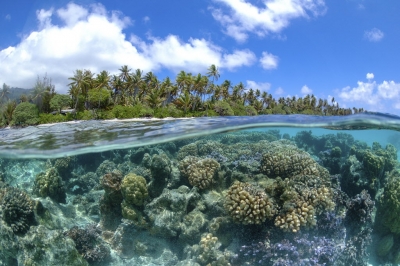What happens when the ocean becomes acidic?

Did you know the oceans absorb 30% of the CO2 emitted on Earth? At the outset, this might seem like a good thing because it means less carbon dioxide in the air and therefore reduction in global warming. But in the past decades, scientists have realised this comes at the cost of changing the ocean’s chemistry.
When carbon dioxide dissolves in seawater, it forms carbonic acid. When emission increases, a lot of CO2 dissolves in the ocean. Incidentally, the rise in CO2 emission is primarily attributed to human activities. The more the CO2, the more acidic the water gets. Subsequently, the pH level of water goes down. (pH is a measure of how acidic or basic water is.) This process is known as ocean acidification. Ocean acidification has the potential to damage the ocean chemistry. Even a small change in the acidity of seawater can have harmful effects on marine life, impacting chemical communication, reproduction, and growth.
Impact on shelled creatures
Ocean acidification affects ocean species in varying degrees. Creatures such as mussels, clams, urchins, starfish and corals are the worst affected. They make their shells and skeletons by combining calcium and carbonate from seawater. As acidification changes the chemistry of the ocean, these organisms struggle to build their shells and skeletons. Even if they are able to build skeletons in more acidic water, they may have to expend more energy which might otherwise be needed for activities such as reproduction. Further, scientists have found that ocean acidification causes shells of some species to dissolve and slows moulting in crabs and lobsters.
Acidification may also limit coral growth by corroding its skeletons. When reef-building corals are affected, a host of marine life that call the reef their home will also be affected.
Impact on fish
A small change in pH can make a huge difference to survival. In humans, a drop in blood pH level of just 0.2-0.3 can cause seizures, coma, and even death. Similarly, fishes are sensitive to pH. If their blood pH drops, they will have to burn extra energy to get rid of the excess acid in their blood through their gills, kidneys and intestines. This will reduce their ability to carry out other tasks such as hunting, escaping predators and reproducing.
Studies have shown that acidification changes the way sounds get transmitted through the water, making the underwater environment noisier.
Picture Credit : Google